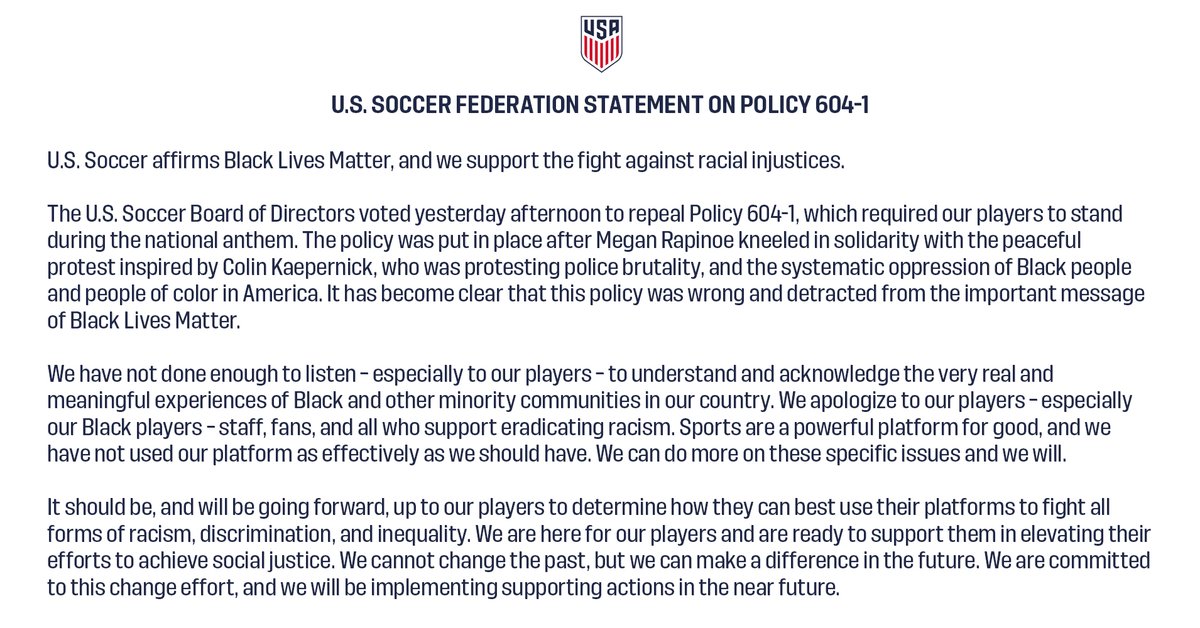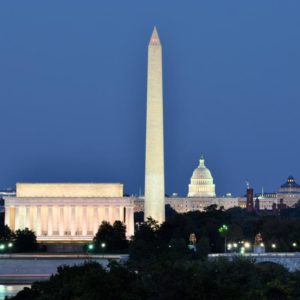The United States Soccer Federation’s board of directors has voted to repeal the 2017 rule that required players to stand during the playing of the national anthem. The decision was taken Tuesday but didn’t become public knowledge until Wednesday.
Former Sports Illustrated writer Grant Wahl broke the news on Twitter. The New York Times later reported that the vote was not unanimous. U.S. Soccer released a formal statement on Wednesday night:U.S. Soccer✔@ussoccer
The U.S. Soccer Board of Directors voted yesterday to repeal Policy 604-1, which required our players to stand during the national anthem.
Black Lives Matter.
We can do more and we will.

3,695Twitter Ads info and privacy3,726 people are talking about this
The rule was introduced in early 2017 after Megan Rapinoe, one of the biggest stars on the world champion U.S. women’s national team, knelt to peacefully protest social injustice before a pair of games in late 2016.
Rapinoe took a knee in solidarity with then-NFL quarterback Colin Kaepernick, who was trying to draw attention to police brutality and systemic racism in the U.S. — issues that have come roaring back to the fore in the two weeks since George Floyd was killed while in police custody in Minnesota. Graphic video of Floyd’s death has sparked outrage around the world.
U.S. Soccer’s decision to scrap its anthem policy came at the urging of new federation president (and former USWNT) standout Cindy Parlow Cone, and after players on both the men’s and women’s squads demanded in recent days that it be removed. They also asked for an apology from the federation. They got it.
“We apologize to our players — especially our Black players — staff, fans, and all who support eradicating racism,” the statement read. “Sports are a powerful platform for good, and we have not used our platform as effectively as we should have. We can do more on these specific issues and we will.”
The change goes into effect immediately. However, it won’t be made permanent unless or until U.S. Soccer’s full membership votes on the change early next year at the federation’s annual general meeting.




